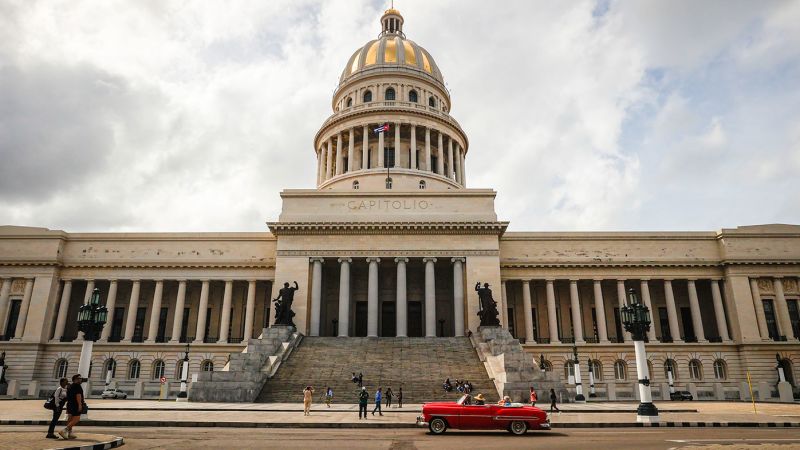The US State Department has removed Cuba from the list of countries not fully cooperating with the US on counterterrorism efforts. This decision was influenced by the resumption of law enforcement cooperation between the US and Cuba in 2023, including on counterterrorism. Additionally, Cuba’s willingness to engage with Colombia on extradition requests for members of the National Liberation Army (ELN) played a role in changing its status. As a result, the State Department deemed it inappropriate to continue certifying Cuba as a “not fully cooperating country.”
Despite being removed from the list, North Korea, Iran, Syria, and Venezuela still remain on the list of countries not cooperating on counterterrorism efforts. Cuba’s government welcomed the State Department’s decision but also called for the US to remove it from another list that designates it as a sponsor of terrorism. Cuban Foreign Minister Bruno Rodriguez Parrilla emphasized that Cuba fully collaborates with anti-terrorism efforts and urged an end to the political manipulation of the issue, as well as the country’s unjust inclusion on the list of countries sponsoring terrorism.
The State Department’s decision to remove Cuba from the list of countries not fully cooperating with the US on counterterrorism efforts was influenced by the improved law enforcement cooperation between the two countries. The ongoing collaboration between Cuba and the US, particularly in relation to counterterrorism, played a significant role in the reassessment of Cuba’s status. Additionally, Cuba’s willingness to engage with Colombia on extradition requests further supported the decision to change its certification status by the State Department.
While Cuba celebrated the decision, it also highlighted the need for the US to remove it from another list designating it as a sponsor of terrorism. The Cuban government emphasized its full cooperation with anti-terrorism efforts and called for an end to its unjust inclusion on such lists. Cuban Foreign Minister Bruno Rodriguez Parrilla called for the cessation of any political manipulation regarding Cuba’s status and urged the US to reconsider its designation of Cuba as a sponsor of terrorism.
Despite being removed from the list of countries not fully cooperating with the US on counterterrorism efforts, Cuba still faces challenges in being designated as a sponsor of terrorism. The US government’s decision to remove Cuba from the list was a significant development in the relationship between the two countries. However, Cuba’s continued inclusion on the list of countries sponsoring terrorism indicates ongoing tensions and challenges in the relationship between Cuba and the US. Cuba’s government remains hopeful for further progress in improving bilateral relations with the US.
In conclusion, the removal of Cuba from the list of countries not fully cooperating with the US on counterterrorism efforts represents a positive step towards improved relations between the two countries. The factors that contributed to this decision, such as improved law enforcement cooperation and willingness to engage with other countries on extradition requests, reflect a changing dynamic in the relationship between Cuba and the US. Despite these positive developments, challenges remain, particularly regarding Cuba’s designation as a sponsor of terrorism. The Cuban government’s calls for an end to its unjust inclusion on such lists highlight the need for continued dialogue and collaboration between Cuba and the US in addressing shared security concerns.













